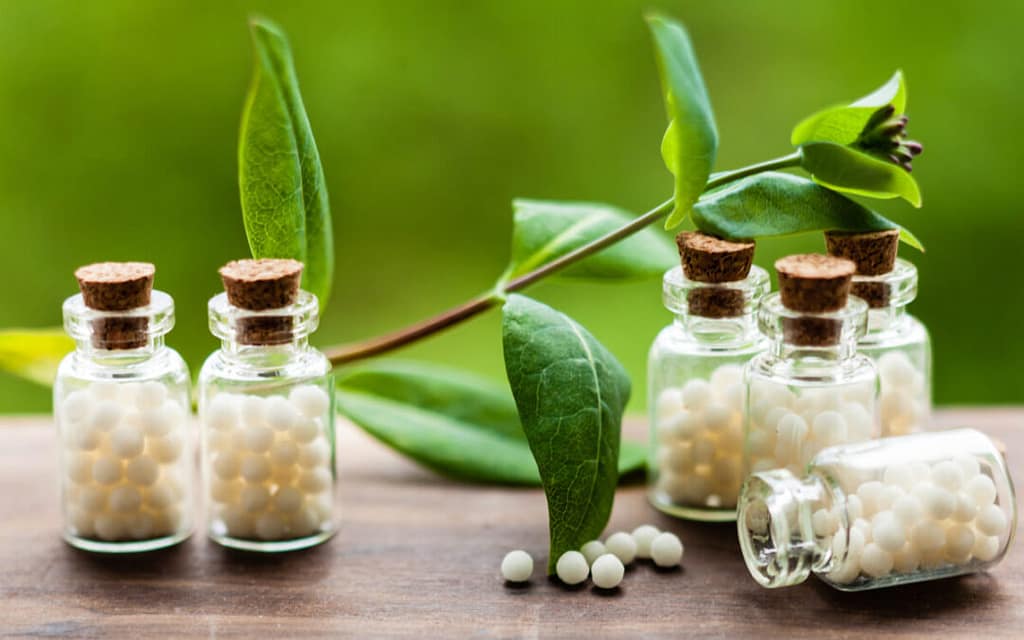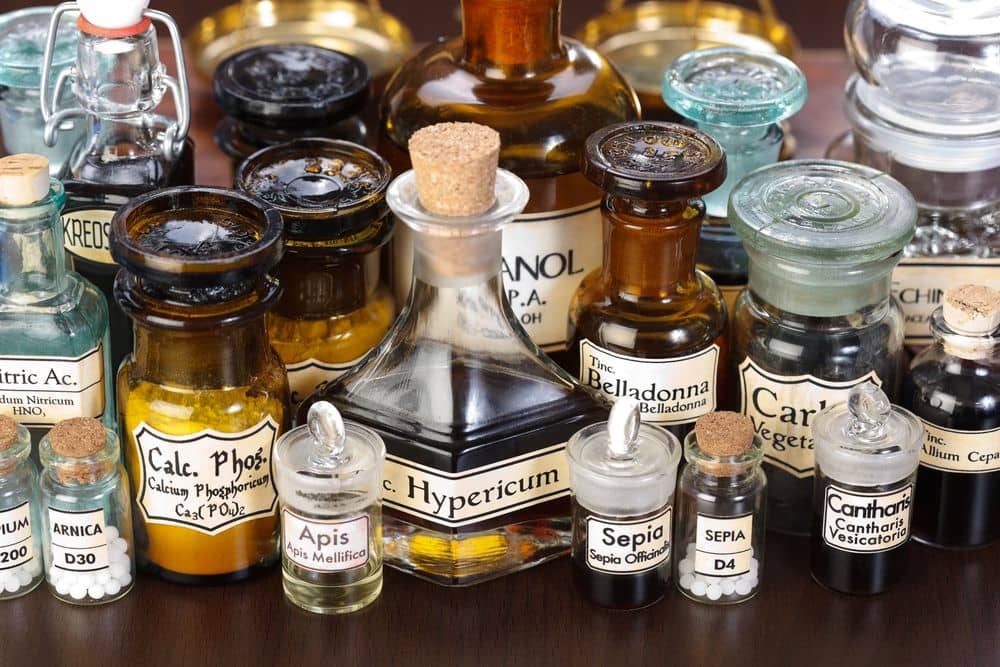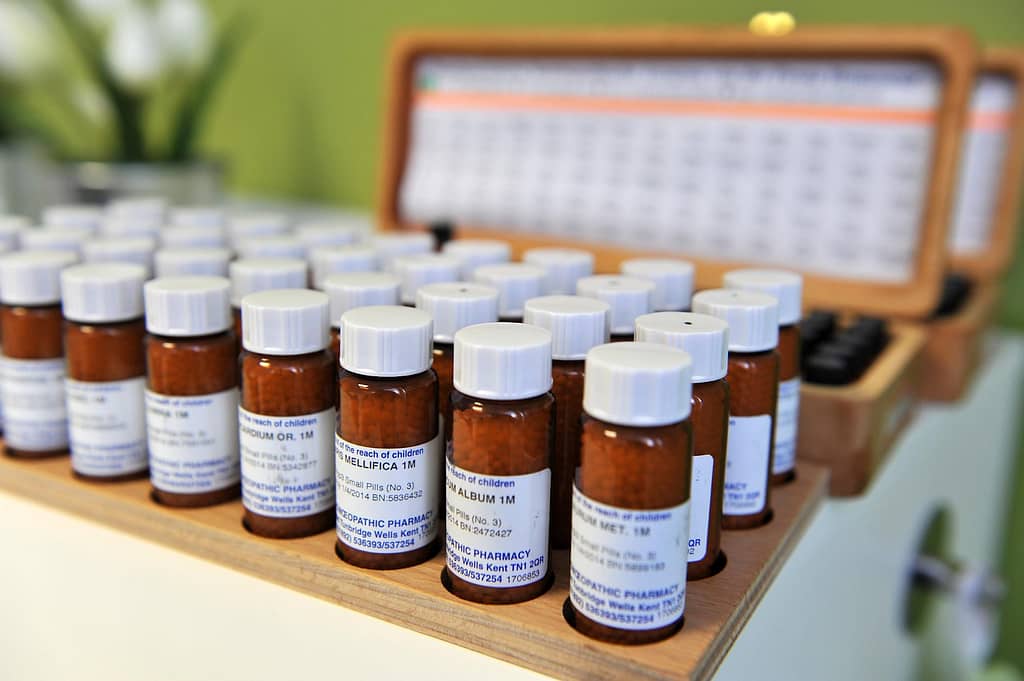
Homeopathy, an alternative type of medicine that is more than two centuries old, has it that “similia similibus curantur,” serves as a stimulant to healing. Despite allegations of inefficiency homeopathic drugs are still in use today. This post is going to delve into its history, principles and practical applications so that you can make an informed choice about your health.
Understanding Homeopathy: An In-Depth Overview
Homeopathy is considered a complete system of alternative medicine that was introduced and popularized in the world of medicine more than two centuries ago by Samuel Hahnemann, a German physician. The two main principles are “like cures like” and “law of the minimum dose.”
The first principle states that a treatment that is known to cause specific symptoms in a healthy person can be used for treating a sick person suffering from the same symptoms. The second principle states that the more a substance is diluted, the less the quantity, and the higher the healing power of that substance.
These remedies are obtained from all-natural sources such as plants, minerals, and animals that are successively diluted and “succussed” for therapeutic enhancement. Homeopathy on the other hand is more of a system, in which the person is treated, and not the disease, hence physical, emotional, and mental signs are assessed.
Such physicians are focused on the potentiation of a person’s self-renewal, so they use individually selected remedy types corresponding to the constitution of each specific patient.
People in all parts of the world, especially in Europe and Asia, practice homeopathy which is well known for its debate. The bare critics always find it very hard to explain the fundamental ideas of homeopathy to a layperson without the use of some strategy to cut its explanation for promotion to the rationalists while some endorsers speak of contention medicine efficiency and the thorough ways of healing that come with this ancient medical practice.

The Historical Roots of Homeopathy
Homeopathy is a system of medicine whose history goes back to the later part of the 18th century when Samuel Hahnemann first developed the concept. He was a qualified physician, but he did not quite fancy the treatments of the time which included bloodletting and purging. Such was his experience that even cinchona bark common for its use in treating malaria could cause malaria in healthy people who were not sick, and it was this that made him come up with what he called inverts (like cures like).
Hahnemann, in 1796, made homeopathy known to the world through a book Organon of the Rational Healing Art, where he published his ideas. The teachings went across the continent within a very short while, reaching areas where the practitioners of orthodox medicine were disappointing the people. It did well in countries like the United Kingdom, Germany, and India, and gradually gained the status of an alternate healthcare system. In the 19th century, it had already crossed the ocean going to North America, where homeopathic colleges and health centers developed.
As much as conventional medicine has improved, there are millions of people across the globe who still utilize homeopathic practices. It contains a great historical context and contemporary viability which places it a foremost system of alternative medicine in the current era.
Fundamental Concepts and Techniques of Homeopathy
There are a number of key principles, practices, and ideas of the practice of Homeopathy that members want to explore further which is probably not the case in the case of normal medicine:
- Individualization: The homeopathic principle of “like cures like” or “let likes be treated by likes” states that poisons can also cure the effects they cause.
- Law of Minimum Dose: Potent remedies are given with the intention that less would be better.
- Individualization: Everyone is treated on the basis of their whole being and not primarily on their manifestation of disease.
- Vital Force: This includes the concept of inducing a person’s life force to generate healing from within.
Homeopathic Treatment uses what are referred to as techniques of potentization that include serial dilutions of substances and succussion which homeopaths believe encodes the ‘energetic imprint’ of an original substance onto water or alcohol solutions. Potent remedies are offered based on the type of ailments that are being treated. Evaluation of the physical, mental, and emotional aspects is conducted in a bid to formulate effective and suitable treatment approaches for each individual.

Exploring the Healing Benefits of Homeopathy
For a long time, homeopathy has been appreciated mainly due to the following reasons:
- Easy Treatment: Since homeopathic treatments are not surgical related, there are no adverse effects and this makes them useful for all ages including babies and old people.
- Chronic Conditions: Oftentimes, it is used for the management of chronic diseases such as allergies, asthma, arthritis, and digestive diseases which can remain untreated through standard treatments.
- Mental & Psychology: Homeopathy is safe enough for the treatment of mental health issues, such as difficulty concentrating, burnout, and depression, which can impact the patient’s emotional health.
- Prevention and Strengthening Immunity: Some homeopaths go as far as saying that this alternative medicine can help boost one’s immune system and stop diseases from occurring.
Although homeopathy is not meant to replace the curative system, it can work along with other treatments to help the patient achieve a healthier status.
Who Can Benefit from Homeopathy? A Guide for Different Needs
A wide array of people and conditions can utilize homeopathy such as:
- Infants and Children: Homeopathy is appropriate for the non drug treatment of the most common complaints in infants: colic, difficulty with teething, ear infections.
- Pregnant Women: A remedy to help relieve morning sickness is completely safe, as are remedies for anxiety and other hormonal changes during pregnancy.
- Elderly Patients: Homeopathy is popular with senior citizens struggling with chronic pain, arthritis, and digestion problems.
- Mental Health Support: Homeopathy offers individualized effective treatment of anxiety, depression and other stress-related disorders.
- Chronic Illnesses: Patients with chronic diseases like asthma, allergies or autoimmune diseases usually resort to homeopathy as an adjunct.
Homeopathy being safe and patient-specific, allows treatment of patients with various health care requirements, while the holistic aspect ensures that it may be used as an adjunct to conventional therapies.
Scientific Insights: What Does the Research Say About Homeopathy?
Debates within scientific orthodoxy continue as to the scientific assessment of homeopathic medicine. Some of the clinical studies conducted had positive conclusions for the treatment of allergies, migraines, and rheumatoid arthritis. On the other hand, a number of researchers, including Griffith, claim that homeopathy is not effective since it uses remedies that are so diluted that they contain no active ingredient, thus positive results, if any, could only come from a placebo.
Some mainstream critics tend to point out the absence of sufficient quantity and complexity of clinical tests and although advocates declare, most of the such tests done are unnecessary since at times such ordinary testing is not appropriate for assessing comprehensive therapies. Such work, including positive medical outcomes associated with homeopathy, particularly management of chronic disease, continues in Europe and India.
The controversy about possible benefits of Homeopathy still leave many doctors and scientists divided. Further studies are still required to evaluate how it works and to assess whether or not it works in the clinic.

Debunking Common Myths and Misunderstandings about Homeopathy
There are quite a few misconceptions about homeopathy, which tend to obscure the understanding of the public. Let’s look at some of the common ones:
Myth: Homeopathy is herbalism.
Fact: Homeopathy also uses natural ingredients however, it is a significantly different practice from herbalism as it also incorporates the processes of dilution and potentization.
Myth: Homeopathic medicines are water only.
Fact: Potentization is a procedure in the making of homeopathic medicines where the energy of the original substance is said to be imparted to the used solution.
Myth: Treatment from homeopathy takes a long time before showing effects.
Fact: Homeopathy does have immediate benefits for acute conditions, on the other hand, if the problem is chronic it may take longer to see the effects.
Considering these stereotypes will enable more people to appreciate the potential and shortcomings of homeopathy as a form of complementary therapy.
How to Find a Qualified Homeopathy Professional: Ways to Find the Right Practitioner
Being treated by a qualified homeopathy practitioner is an important step towards ensuring safety and effectiveness. Good pieces of advice include:
- Licensing and Certification: Certification from known boards or associations in the field of homeopathy is preferred.
- Length of Experience and Area of Specialization: It would be preferable to seek one who is experienced in the condition for which homeopathic treatment is sought.
- Consultation Style: An efficient homeopath would invest time in studying the physical, emotional, and mental health of a person.
- Referrals and Reviews: Ask for referrals and read reviews of other patients as well.
In addition, the practitioner should be willing to integrate homeopathy with your conventional or other alternative therapies that may be prescribed for you.

Integrating Homeopathy with Conventional Therapies
It is very common for homeopathic treatments to be used in combination with other types of medicine and therapies in general for the achievement of better health. These practices provide examples of integration:
- With Conventional Medicine: Homeopathy can help relieve the side effects of conventional medicine, for example, in chemotherapy, or improve chronic disease management.
- With Complementary Therapies: The practice of homeopathy can be practiced with other modalities such as acupuncture, chiropractic therapy, or naturopathy.
- Mental Health Support: Homeopathic treatments can be used together with psychotherapy or any form of counseling where healing of emotional disorders meaning to support wellness is required.
In the case of planned integration of homeopathy, it is necessary to be involved in the treatment team of care providers for the adequateness and safety issues.
Understanding the Risks: Potential Side Effects and Precautions of Homeopathy
Homeopathy practice is quite safe (and undesired events occurrence is essentially very limited) methods of treatment, nevertheless, some measures have to be taken:
- Reoccurrence of Symptoms: In some instances, there may be exacerbation of certain symptoms before a beneficial change is noticed healing crisis
- Drug Interactions: This is uncommon as homeopathy medicines are unlikely to interfere with conventional medicines. However, always keep your clinician informed of your homeopathic medications.
- Allergic Reactions: Homeopathic medicines are taken in an extremely diluted form which technically prevents allergic reaction but there are cases since some patients can be allergic to less diluted substances e.g. plants and minerals.
To help in these cases, however, one can limit these risks by working with a qualified homeopath and talking about their current health status and medications, if any, that they might consider homeopathy safely.
The Challenges and Controversies Surrounding Homeopathy
It presents a highly controversial topic within the medical sphere: homeopathy. Some of the most persistent criticisms are related to:
- Insufficient Scientific Evidence: Opponents point out that homeopathy does not have sufficient clinical trials and evidence and that their treatment contains no active ingredient.
- Placebo Effect: Some research explores the argument that the benefits of homeopathy are the result of a placebo rather than the remedies themselves.
- Regulatory Issues: In some nations, the practice is almost completely unregulated, thus heightening concern with the integrity and effectiveness of homeopathic preparations.
Supporters of homeopathy disagree with the idea that it is ineffective, explaining that it works on the whole body unit and gets rid of the disease, not just the symptoms of it. The struggle between supporters and opponents keeps on, revealing that the topic is needful of more studies.
Understanding the Financial Investment in Homeopathy
The rates for homeopathic treatment differ according to the level of the practitioner, the city and geographical location as well as the duration of a given treatment. To be precise, going for an initial consultation will cost between one hundred to two hundred and fifty dollars while follow up sessions normally go for fifty to a hundred and fifty dollars.
The medications used in this therapy are not expensive ranging from five to twenty dollars. Then again, the number of consultations and the requirement for treatment over long periods may escalate the costs. In most parts of the world, the insurance coverage for homeopathy is scant, hence the reason why it is advisable to check with your provider to know what’s right and not covered.
Overall, all other factors aside, homeopathy, lets emphasize on the importance of financial commitment, investment analysis helps to know how homeopathy is effective in counteracting health problems in a more reasonable and extended term.

How to Become a Practitioner of Homeopathy?
If you strongly believe in the approach of complementing conventional medicine with alternative modalities and want to go a step further and do homeopathy practice, here’s what you’ll have to do:
- Education: Go to an approved institution that teaches professional homeopathy covering aspects of homeopathy, anatomy, and pathology.
- Certification: Chart a course in order to get certified from a relevant homeopathic board or association and gain some respect.
- Clinical Training: Theoretical training alone does not develop skills; clinical training is instrumental in practice.
- Licensing: It is also noteworthy that licensing requirements differ according to regions, therefore, it is best to consult local laws and organization regulations.
Over time, practitioners may also pursue further skills enhancement through continuous education and- or advanced training programs and broader their practice areas, too.
Creating a Community: Connecting with Others Who Practice Homeopathy
Being a part of a community of like-minded individuals has its advantages whether you are a seasoned practitioner or a newcomer to the field of homeopathy. Here’s how to connect:
- Become a Member of Professional Associations: Membership in homeopathic associations is an opportunity to get various materials on homeopathy, go to symposiums, and communicate with other members.
- Join Workshops and Seminars: Such events give you an opportunity to listen to the masters and work with their colleagues.
- Communal Systems on the Internet: Most of the homeopaths take part in forums, social media, webinars, and such other activities to create awareness and to learn.
Developing a community does not only provide professional rewards but also a journey towards self-development as a homeopathyє.
Conclusion
Homeopathy is a form of therapy that is different from others in the sense that it is more of an individual-oriented, non-invasive and a body-oriented healing method. Treatment or rehabilitation are the only two possibilities for those wishing to become homeopathy practitioners. In the former, homeopathy can be incorporated into traditional and alternative therapeutic approaches which can help improve health and wellbeing. It is hopefully enough to introduce you to its principles, history and benefits so that you can bring it into your life and join other like-minded holistic health practitioners.

